When you think about A Nightmare on Elm Street, odds are you think of that guy with the burned face and knives for fingers. But why isn’t the heroine as iconic as the villain?
That’s a question Heather Langenkamp, the actress behind Nightmare’s leading lady Nancy Thompson, seeks to answer in her 2010 documentary I Am Nancy. Why is Freddymania inescapable in memorabilia and cultural references, while the defining heroine is treated like a footnote? The documentary shows Nancy, while unjustly overlooked at large, is much beloved by fans, and rightly so. She’s one of the premiere examples in the genre’s history of an empowered woman.
At first glance Nancy may seem like your average teenage murder-fodder as well as your typical Final Girl: innocent, unassuming, the only one left standing. But Nancy transcends those 1980s slasher tropes by developing over the course of the film into a fully-fledged character. Right away we see she’s deeply caring; her best friend Tina (Amanda Wyss) is rattled by a nightmare, so Nancy sleeps over at her house to keep her company. When Tina is viciously murdered and the police blame her hothead boyfriend Rod (Nick Corri), Nancy defends Rod’s innocence. But compassion is only one of her defining characteristics — she’s clever, resourceful, determined, and stunningly courageous, clever enough to not just survive through good luck, but defeat and outwit her adversary.
Her role isn’t just reactionary or passive, screaming helplessly while waiting to be terrorized by the gruesome villain. She learns, and builds, and plans. She’s one of the few Final Girls to take an active role in ensuring her own survival by hunting down the information she needs to inform her actions, moving the plot forward through her choices, and remaining resilient in the face of losing almost everyone she loves. She burns her arm to snap free from a nightmare. She realizes she can bring items out of her dreams by holding onto them, an essential piece of knowledge. She goes looking for Krueger, full-throttle on the offensive — reads books about survival techniques and crafts booby traps out of household items: wire, lightbulb, sledgehammer, coffee pot. She lays a series of defensive traps in her house for Krueger to fall into, and fall he does, bumbling and screaming. She taunts him into the basement where she tosses gasoline on him and sets his ass on fire. Kevin McCallister got nothing on this girl.
Nancy’s only thwarted by other people’s lack of belief in her. Convinced she’s just acting hysterical, her mother (Ronee Blakley) violates her bodily autonomy by subjecting her to sleep clinic tests and locking her in a window-barred house. If horror movies are metaphors for the passage into adulthood and all that entails, Nancy is a woman who combats physical and mental assault: gaslighting, kidnapping, implied rape, and attempted murder, all in the space we’re most vulnerable and defenseless — our dreams.
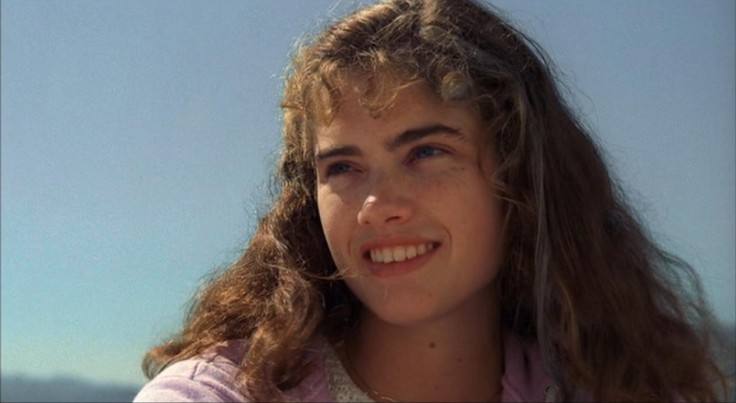
But Nancy’s not just a non-stop Terminator badass. She’s also allowed vulnerability. She cries. She gets exhausted. She’s infuriated with her alcoholic mother, smashing Mom’s vodka bottle on the floor while screaming in her face, but still loves her. She swears like a sailor. She laughs with her friends. Her battle armor of choice is a pair of white pajamas with pink roses, an adorable touch signifying her lost innocence but also that our heroine can wear pink because, well…she likes pink. There’s no infantilization or coding of her traditional femininity as weak.
Nancy’s relatable and human, a high school suburban teen with divorced parents and multiple layers, who recognizes her fears, faces them, and triumphs over them resoundingly. She doesn’t survive because she was a “good” girl who avoided sex and drugs while her “bad” friends were punished for their vices; we assume Nancy’s a virgin because we don’t see her sleep with her boyfriend Glen (Johnny Depp), but she survives on the merit of her wits, not according to the mercy of some authoritative moral code. Like the best of heroines, in the best of horror, she discovers her mettle when put through the fire.
Best of all is how she defeats Krueger. She wins not with violence or a symbolically phallic weapon (thereby assuming her power by assuming masculinity), but by denying him her emotional energy. “You’re nothing,” she hisses. “You’re shit.” Nancy literally turns her back on her fears and reclaims them for herself as an adult and a survivor.
(Freddy does return in the final twist scene, but that’s the way movies work when they want sequels. And Wes Craven hated that ending.)
Those traits make her so much more than the stereotypical Final Girl, a mold from which admittedly have sprung many excellent protagonists. The problem lies in whether they’re written as a genuine, assertive character. Let’s gag in our mouths and look at Nancy’s spiritual/narrative replacement in the 2010 remake: Nancy Holbrook (Rooney Mara) lacks agency, personality, and conviction, floating through the film like an empty, limp shell. The real Nancy pivots on those cliches and punches them in the face. Even 32 years later, she’s remarkably progressive.
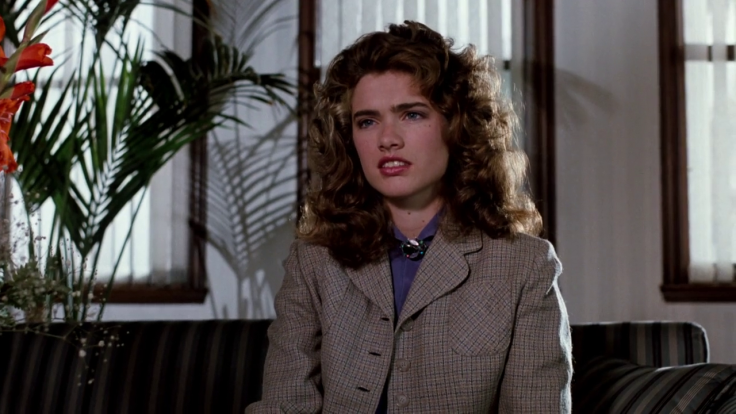
After surviving the first movie, we next see Nancy in Nightmare on Elm Street 3: Dream Warriors. She’s a college graduate specializing in dream research, interning at a psychiatric hospital where several of the teenage patients are sharing dreams about a man with razor-hands. Sound familiar?
When she isn’t rocking ’80s power suits she serves as a guardian angel figure for the kids, guiding and protecting them from Krueger as best she can, passing along her wisdom. Whereas the first film gave Nancy many shades of emotion, she doesn’t get to do much here other than act worried about the children under her care. Worse yet, during the final battle Krueger kills her by disguising himself as her estranged father. She uses her dying breath to stab Krueger with his own blade, but that fails to kill him; what does is her not-boyfriend tossing Holy Water on Krueger’s bones (one of the rare instances in the franchise where a woman doesn’t deliver the final blow). Nancy’s death doesn’t negate her prior accomplishments, and she went out a defiant fighter, but it’s a deep shame she couldn’t continue to survive, especially after all she did achieve.
It’s worth mentioning that in the Innovation comic series Nightmares on Elm Street, Nancy’s still alive — in the dream world, that is. She’s a spirit with powers like Freddy’s, but she uses them to fight Krueger and defend those in need. Nancy was always Freddy’s equal and opposite even as a human without supernatural abilities, but she literally becomes the anti-Freddy, the “good” to his boogeyman — an actual Dream Warrior. That’s an arc conclusion I would’ve adored to see play out onscreen.
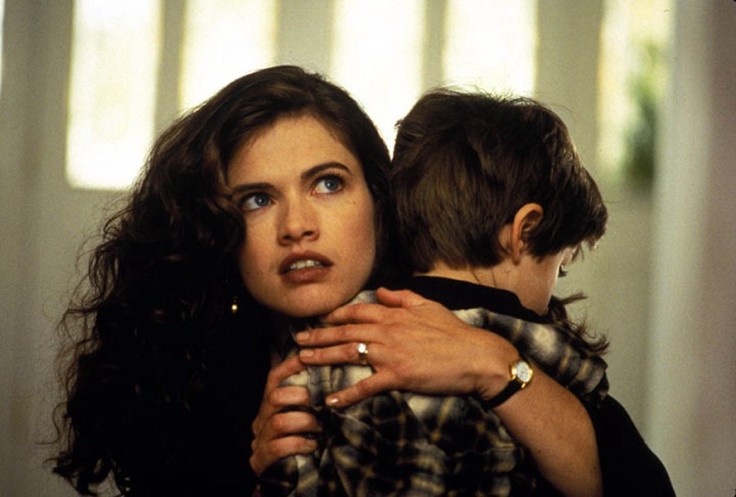
Nancy appears for the last time, sorta, in Wes Craven’s New Nightmare, the penultimate installment in the original franchise. Heather Langenkamp plays a fictionalized version of herself, an actress famous for her role as Nancy in “those movies.” Harassed by a stalker and worried about her recent string of disturbing dreams, Heather’s unsure if she wants to revisit the Nancy role when New Line Cinema proposes a new movie. Eventually she learns that an ancient evil, trapped in the fictional world of the Nightmare franchise and kept at bay by its success, is trying to break out into the real world and wreak havoc Freddy-style. In order to defeat the entity (who looks like Krueger), Heather must “play” the role of Nancy one last time.
It’s a corker of a meta experiment about the power of stories that shouldn’t work, but with a smart script and a delicately aware touch, it’s easily the second best Nightmare film. The characters of Heather and Nancy are markedly similiar: both determined, resolute, and caring. The primary difference is Heather’s motivations stem from the maternal desire to protect her son, but being a Heroic Mama Bear doesn’t define her. Heather’s moral courage informed her performance of Nancy, and by “becoming” Nancy once again, Nancy’s story gives Heather the strength to defeat Freddy. The fiction of Nancy was so powerful, it helped a woman in the real world overcome her fears. That cyclical imagery is immeasurably powerful.
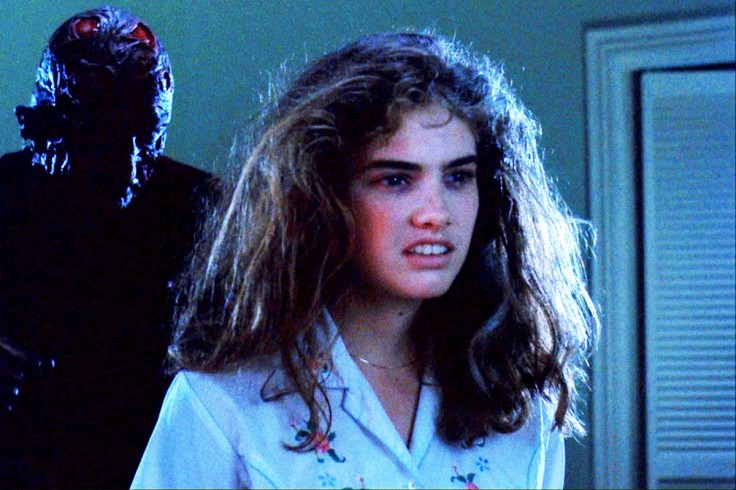
In the I Am Nancy documentary, Wes Craven’s daughter Jessica shares how she inadvertently inspired Nancy’s character by telling her dad she wanted a girl in a horror movie who wasn’t weak or foolish. Mr. Craven went on to write and direct Nightmare, a movie based around a teenage girl explicitly modeled after his mother. In turn Nancy has inspired countless fans to overcome their own nightmares through her courage and tenacity. The legacy of the series belongs as much to her as Freddy, making her one of horror’s most feminist women, and my personal favorite.
Women In Horror is a series examining the roles of female characters in some of the genre’s most iconic films.

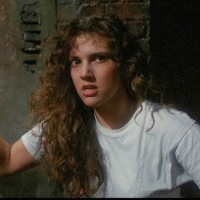
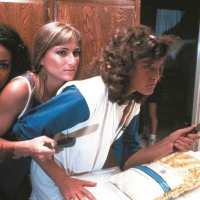







What an amazing writeup! Do you write for any other publications at all?
LikeLiked by 1 person
Thank you so much! I’ve contributed to btchflcks.com and Women and Hollywood in the past, but currently nothing else except my personal blog.
LikeLike
Awesome! Would you be interested in featuring this with us at movie pilot and creators? Just shoot me an email if you would like to – mike.fleck@moviepilot.com
LikeLiked by 1 person